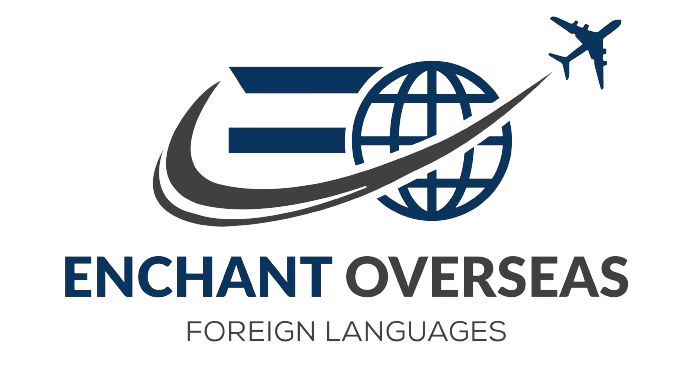GMAT

Introduction:
In the competitive landscape of higher education and business, standardized tests play a pivotal role in assessing candidates’ readiness for academic rigor and professional challenges. Among these assessments, the Graduate Management Admission Test (GMAT) stands out as a benchmark for evaluating individuals aspiring to pursue graduate management education, including MBA programs. Recognized by thousands of business schools worldwide, the GMAT serves as a critical determinant of academic potential and analytical aptitude. In this comprehensive guide, we’ll delve into the significance of the GMAT, its structure, preparation strategies, and the myriad opportunities it unlocks for individuals seeking to excel in the fields of business and management.
Understanding the Significance of the GMAT:
- Gateway to Prestigious Business Programs: For many aspiring business leaders, the GMAT serves as the gateway to some of the world’s most prestigious MBA programs. Business schools utilize GMAT scores as a key component of their admissions criteria, providing insights into candidates’ quantitative, verbal, analytical, and reasoning abilities. A strong GMAT score not only enhances your chances of acceptance into top-tier MBA programs but also demonstrates your readiness to excel in a rigorous academic environment.
- Benchmark of Academic Potential: The GMAT is designed to assess critical thinking skills, problem-solving abilities, and reasoning capabilities—qualities essential for success in graduate management education and beyond. By measuring candidates’ aptitude across multiple domains, the GMAT offers business schools a standardized metric for evaluating applicants’ academic potential and predicting their likelihood of success in MBA coursework and beyond.
- Global Recognition and Standardization: The GMAT is recognized and respected by business schools worldwide, offering candidates the flexibility to pursue graduate management education in various countries and regions. Whether you aspire to study at renowned institutions in the United States, Europe, Asia, or elsewhere, a strong GMAT score serves as a universal credential that transcends geographical boundaries and cultural differences.
- Employability and Career Advancement: In addition to its role in admissions, the GMAT can enhance candidates’ employability and career advancement opportunities. Employers in various industries value the analytical, problem-solving, and decision-making skills demonstrated by high GMAT scorers, viewing them as assets in roles requiring strategic thinking, data analysis, and leadership.
Overview of the GMAT Examination:
The GMAT is a computer-adaptive test comprising four main sections: Analytical Writing Assessment (AWA), Integrated Reasoning (IR), Quantitative Reasoning, and Verbal Reasoning. Here’s an overview of each section:
- Analytical Writing Assessment (AWA): In this section, candidates are required to analyze an argument and write a coherent essay presenting their analysis. The AWA measures candidates’ ability to critically evaluate and articulate complex ideas in written form, assessing their analytical thinking and written communication skills.
- Integrated Reasoning (IR): The IR section assesses candidates’ ability to interpret and analyze data presented in various formats, including tables, graphs, and charts. Candidates must answer questions that require them to integrate information from multiple sources, evaluate data in context, and solve complex problems using logical reasoning and quantitative analysis.
- Quantitative Reasoning: The Quantitative Reasoning section evaluates candidates’ mathematical proficiency and problem-solving skills. It includes questions on arithmetic, algebra, geometry, and data analysis, testing candidates’ ability to apply mathematical concepts to real-world scenarios and solve quantitative problems using logical reasoning and quantitative methods.
- Verbal Reasoning: The Verbal Reasoning section assesses candidates’ reading comprehension, critical reasoning, and sentence correction skills. It includes questions on reading passages, analyzing arguments, and correcting errors in written sentences, testing candidates’ ability to understand written English, evaluate arguments, and communicate effectively in written form.
Preparation Strategies for GMAT Success:
Achieving a high score on the GMAT requires diligent preparation and strategic planning. Here are some effective strategies to help you prepare for the exam:
- Understand the Exam Format: Familiarize yourself with the structure, timing, and scoring format of the GMAT. Review sample questions, practice tests, and official GMAT study materials to gain insights into the types of questions you’ll encounter and the skills assessed in each section.
- Assess Your Strengths and Weaknesses: Identify your strengths and weaknesses across different GMAT sections, such as quantitative reasoning, verbal reasoning, and analytical writing. Focus your preparation efforts on areas where you need improvement, allocating more time and resources to mastering challenging concepts and skills.
- Develop a Study Plan: Create a comprehensive study plan that outlines your study goals, timelines, and resources. Schedule regular study sessions, practice tests, and review sessions to ensure consistent progress and mastery of GMAT content. Break down your study plan into manageable tasks, setting specific objectives for each study session to stay focused and motivated.

- Utilize Official GMAT Resources: Take advantage of official GMAT preparation materials, including practice exams, study guides, and online resources provided by the Graduate Management Admission Council (GMAC). Official GMAT materials offer authentic practice questions, detailed answer explanations, and valuable insights into the exam structure and content.
- Practice Time Management: Practice time management strategies to ensure that you can complete each section of the GMAT within the allocated time limits. Pace yourself during practice tests, prioritize questions based on difficulty and point value, and develop strategies for efficiently navigating each section while maximizing your score potential.
- Review Basic Concepts: Review fundamental concepts in mathematics, grammar, and critical reasoning that are tested on the GMAT. Strengthen your foundational knowledge in areas such as algebra, geometry, grammar rules, and logical reasoning to build a solid framework for tackling more complex questions on the exam.
- Take Regular Practice Tests: Take regular practice tests under simulated exam conditions to assess your progress, identify areas for improvement, and build endurance for the actual exam. Analyze your performance on practice tests, review your answers, and identify patterns of errors or recurring challenges to focus your study efforts effectively.
- Seek Additional Support: Consider enrolling in GMAT preparation courses, workshops, or tutoring sessions to receive expert guidance and support in your preparation journey. Experienced instructors can provide personalized feedback, strategies, and tips to help you optimize your study plan and achieve your target GMAT score.
The Benefits of GMAT Certification:
Earning a high score on the GMAT offers numerous benefits for individuals aspiring to pursue graduate management education and advance their careers:
- Admissions Advantage: A strong GMAT score enhances your competitiveness and chances of acceptance into top-tier MBA programs and business schools worldwide. Admissions committees view high GMAT scores as a testament to your academic potential, analytical aptitude, and readiness for graduate-level coursework.
- Scholarship Opportunities: Many business schools offer scholarships, grants, or financial aid to exceptional candidates with high GMAT scores. A strong GMAT performance can increase your eligibility for merit-based scholarships and reduce the financial burden of pursuing graduate management education.
- Networking and Career Opportunities: Graduate management programs provide valuable networking opportunities, career resources, and access to a global alumni network. By earning a GMAT certification and attending a reputable business school, you can expand your professional network, connect with industry leaders, and access career advancement opportunities in various sectors and industries.
- Skill Development and Personal Growth: Preparing for the GMAT involves developing critical thinking skills, time management abilities, and perseverance—qualities that are invaluable for success in academia and beyond..
